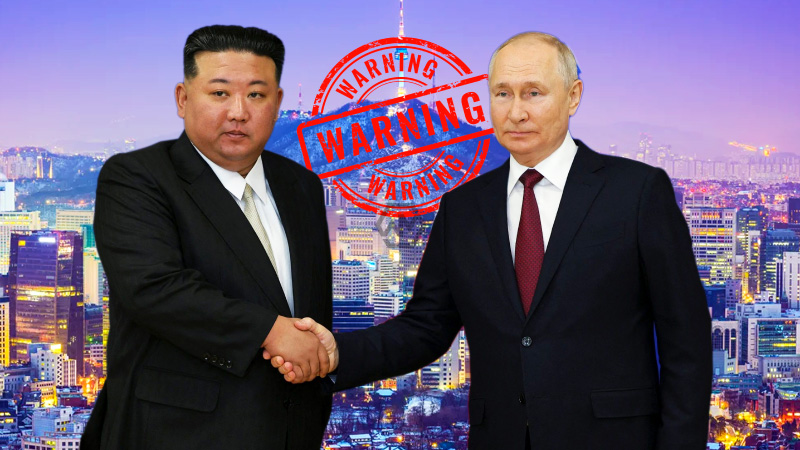- Russia and North Korea form a strategic defense pact, altering regional security dynamics.
- South Korea reconsiders military aid to Ukraine amidst rising tensions on the Korean Peninsula.
- Increased military activities in the DMZ heighten alertness and potential for conflict.
The recent strategic alliance between Russia and North Korea marks a significant shift in East Asian geopolitics. Putin’s warning to South Korea about supplying weapons to Ukraine underscores the heightened tensions in the region.
South Korea, traditionally supportive of Ukraine through financial and humanitarian means, now faces a crucial decision about providing military aid. This dilemma is compounded by increasing incidents and provocations in the DMZ, pushing Seoul to intensify its military cooperation with the United States.
Geopolitical Shifts in East Asia: Russia-North Korea Alliance and Its Repercussions
The alliance between Russia and North Korea has introduced a new strategic element to the security landscape of East Asia. During his visit to North Korea, Putin cemented a pact with Kim Jong Un, focusing on mutual defense. This development has significant implications, not just for the Korean Peninsula but for global geopolitics, particularly as tensions rise around the DMZ.
South Korea is now reassessing its foreign policy, especially its stance on military support to Ukraine. Historically, South Korea has refrained from providing military aid to countries at war, preferring to offer financial and humanitarian assistance. However, the new geopolitical realities, marked by the Russia-North Korea agreement, are pushing Seoul to reconsider this policy.
The increased incidents in the DMZ, including North Korean provocations and South Korean defensive measures, underscore the fragile state of peace on the peninsula. The heightened military readiness on both sides points to a precarious balance, where any misstep could lead to a significant escalation. South Korea’s intensified military exercises with the US further reflect its concern over potential threats.
The broader implications of the Russia-North Korea alliance extend beyond regional security. For South Korea, the decision to provide military aid to Ukraine is fraught with potential repercussions. Putin’s warning highlights the delicate balance Seoul must maintain between supporting Ukraine and ensuring its own national security. The international community must navigate these complexities to maintain stability in East Asia and address the ongoing conflict in Ukraine.
The evolving geopolitical landscape in East Asia, driven by the Russia-North Korea alliance and rising tensions on the Korean Peninsula, places South Korea at a critical decision-making point. The international community‘s efforts to maintain stability will be crucial in preventing further escalation.
“The strategic alignment between Russia and North Korea not only challenges the stability in East Asia but also complicates the global response to the Ukraine conflict.” This quote encapsulates the broader implications of the new alliance, highlighting how regional dynamics can have far-reaching global consequences.



